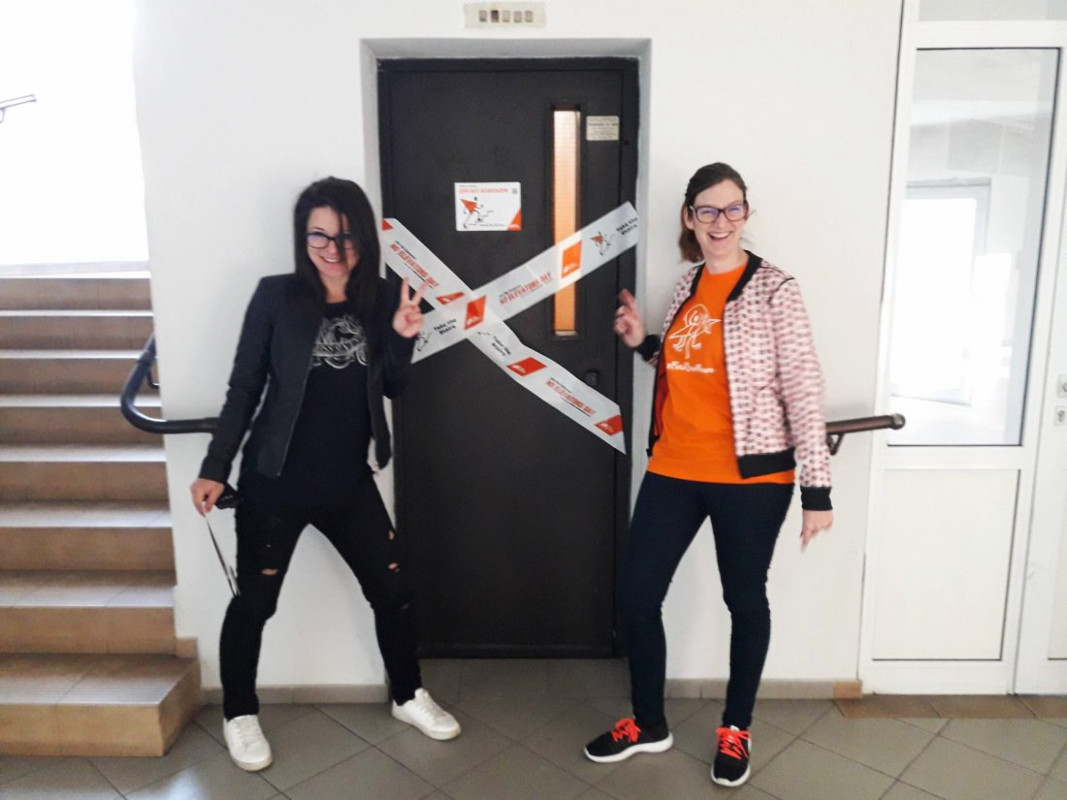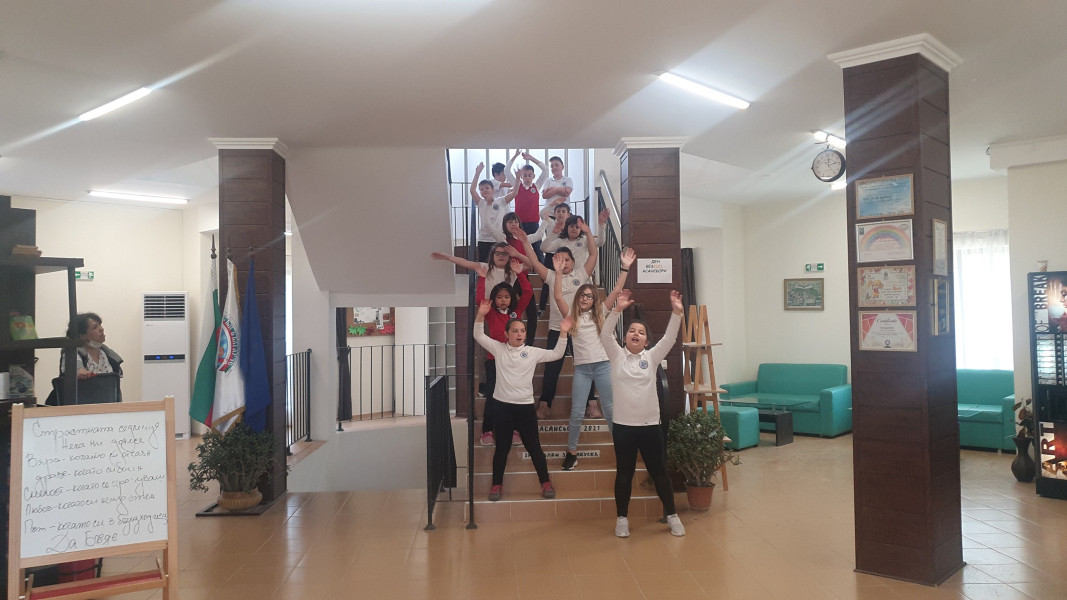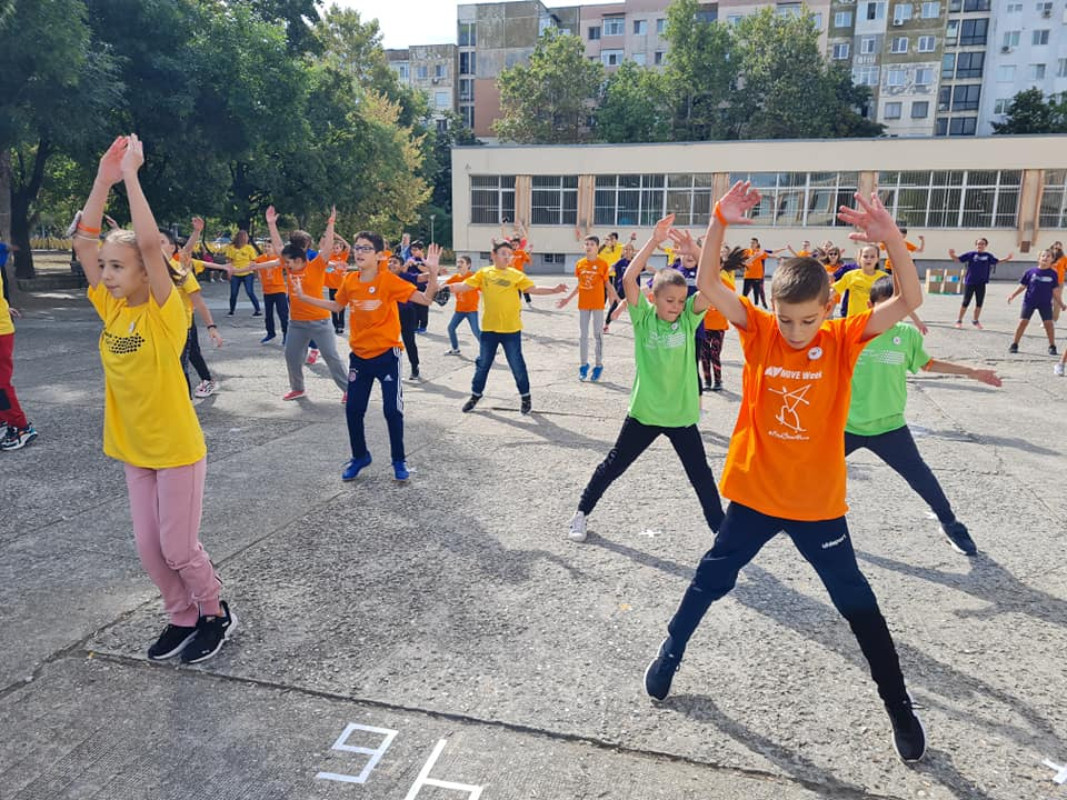For 9th year in a row, April 26 is No Elevators Day in Bulgaria. There are more than 30 cities and towns in this country that are involved in the initiative of association BG Be Active. "The aim is to direct attention to physical activity and demonstrate how easy it is to be active despite the busy daily life, by choosing to climb the stairs instead of using elevators," Rumyana Kirizieva told BNR-Stara Zagora.

About 80 percent of teenagers and 27 percent of adults don't have enough exercise, according to the World Health Organization's first Global Status Report on Physical Activity, which includes data from 194 countries.
"Movement has positive effect on our physical and emotional health. Our message to absolutely all people – young and old, is to add more movement to their everyday life. This can be easily achieved by choosing the stairs, going to work by foot, choosing the bike instead of the car, going for a walk in the park. We hope that our message would reach everybody.”

Traditionally, educational institutions in Bulgaria are active participants in No Elevators Day campaign, organizing various activities for children in the school yards, as "active children become active adults".
"This is how they build sustainable habits as it is much easier to accept something as normal when you are child and apply it in your life,” Rumyana Kirizieva says. “But if it weren't for the teachers and their active support, we wouldn't be able to work with so many children all across Bulgaria. We also need to take into account the fact that teachers and principals embrace our ideas, whether they are related to physical activity or the topic of recycling and environmental protection. They are always very active."

Nearly 30% of school-age children in Bulgaria are overweight or obese, as the problem is more serious among children aged 9 or 16. The Covid-19 pandemic has contributed to the problem of decreased mobility.

"Definitely the pandemic had consequences that affected not just children, but also adults. However, I think that we are starting to move a little bit more in our daily lives,” Rumyana Kirizieva says. “I can point out that in previous years, about 400 schools were involved in our activities, while in the latest edition of Sports Day in School, their number doubled. Therefore, I think that more work is being done and more children are now practicing sports for health."
Compiled by: E. Karkalanova /based on an interview by Elena Balabanova, BNB-Stara Zagora/
English: Al. Markov
Photos bgbeactive.org
Bringing youthful energy, colour and cheer to the Bulgarian National Radio studio, students from the Bulgarian Sunday School Dr Petar Beron arrived from Larnaca. The group from Cyprus — 16 pupils aged between 14 and 19 — is currently on a week-long..
At the outset of the war between Russia and Ukraine, the Bessarabian Bulgarians across all lands marked their national day with prayers for peace. Nearly four years on, burdened with even greater sorrow, they commemorate that special day scattered..
Switzerland is one of the smaller Central European countries on the Old Continent. It consists of twenty-six cantons with a population of about 9 million people, according to the latest Eurostat data from 2024. 41% of those residing in the country are..
Everyone knows that as soon as temperatures start going down it is pickle-making season. Making preserves at home is a time-honoured and widespread..
Minister of the Environment and Water Manol Genov has granted two centuries-old trees – each of which approximately 200 years old – protected status,..

+359 2 9336 661
